Parking in Honolulu may be Driving Up Housing Costs
How much of Honolulu consists of sprawling stretches of blacktop dedicated to temporary storage of dormant vehicles?
In Hawaiʻi’s capital and in metropolitan areas across the United States, parking lots
dominate much of the surface space.
This is because, since World War II, American city planning has largely privileged the car.
Garages, lots, and pavement consume huge amounts of real estate in areas where every square foot is an increasingly rare and expensive commodity.
Has this been the optimal approach to city design? Does it make sense to give vast stretches of land within densely packed urban areas like Honolulu over to the empty car?
Donald Shoup, distinguished research professor in the department of urban planning at UCLA, has spent his career studying this issue. His conclusions have game-changing implications.
In a live online event hosted by the University of Hawaiʻi Better Tomorrow Speaker Series, Shoup will illustrate that even simple modifications to how we handle parking, such as removing requirements for the construction of off-street parking-lots and charging market prices for street parking, can:
- drive down housing costs
- bolster public transportation
- decrease carbon output
- advance social justice
- generally make cities more enjoyable places to live and work.
Shoup, who grew up in Hawaiʻi, is a world-renowned authority on transportation, public finance, and land economics. He is the author of the book The High Cost of Free Parking and the follow-up collaboration, Parking and the City.
Among other online talks and features explaining his findings, Vox produced a 2017 video based on Shoup’s work that has received over four-million views.
From national issues to the Hawaiʻi experience, Shoup will be interviewed by Makena Coffman, director of the UH Mānoa Institute for Sustainability and Resilience (ISR) and professor of urban and regional planning. Kathleen Rooney, director of transportation policy and programs at Ulupono Initiative, will also provide insights based on the organization’s 2020 report on The Costs of Parking in Hawaiʻi—the state’s first comprehensive cost inventory that shows the often hidden impact to cost of living, specifically for housing and goods.
Shoup collaborated with Rooney on an article for the Honolulu Civil Beat in December 2019 that focused on how parking-lot construction requirements drive up housing costs and defer public transportation efforts.
The livestream conversation, “The High Cost of Free Parking,” will be held on Wednesday, August 18, at noon. It will also feature Katia Balassiano from the City and County of Honolulu Department of Planning and Permitting.
The event is open to the public. (Submit questions and register here.)
The Better Tomorrow Speaker Series is a joint venture of the Hawaiʻi Community Foundation, Kamehameha Schools and UH Mānoa. Lead sponsors of the event include the Climate Change Mitigation and Adaptation Commission; Ulupono Initiative and the University of Hawaiʻi Economic Research Organization. Co-sponsors include the UH Mānoa College of Social Sciences, Department of Urban and Regional Planning, ISR, Public Policy Center and the William S. Richardson School of Law.
For more information, visit the UH Mānoa Better Tomorrow Speaker Series website or email btss@hawaii.edu.
This event is an example of UH Mānoa’s goal of Building a Sustainable and Resilient Campus Environment: Within the Global Sustainability and Climate Resilience Movement (PDF), one of four goals identified in the 2015–25 Strategic Plan (PDF), updated in December 2020.






